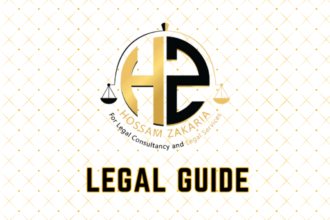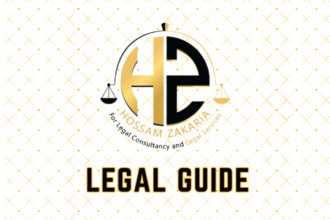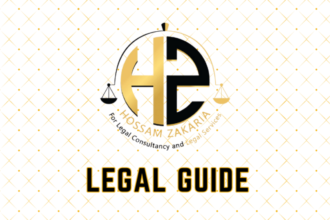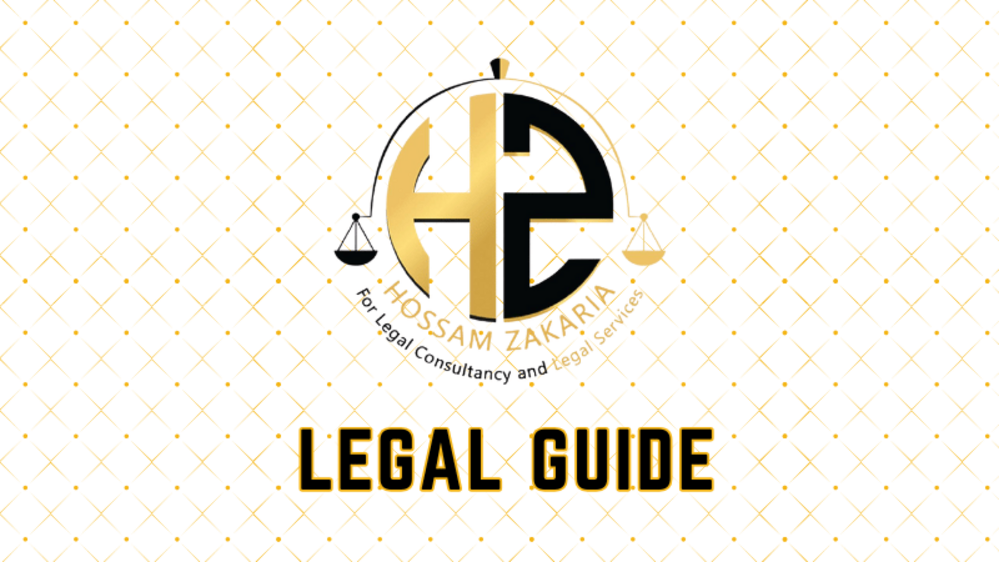Introduction: The Evolving Landscape of AI Regulation in the Gulf
The transformative rise of Artificial Intelligence (AI) has brought unprecedented opportunities and challenges for global enterprises. In the GCC region, Qatar is positioning itself as a frontrunner in digital transformation, rolling out advanced regulations to govern AI technologies. For UAE-based organizations, particularly those with cross-border operations or aspirations, understanding and responding to recent Qatari AI regulatory frameworks is not merely an academic exercise—it is a business imperative. The 2025 updates to UAE federal laws and the dynamic legal infrastructure in Qatar necessitate a nuanced, comparative approach in legal compliance, strategic planning, and risk management. This article aims to clarify Qatari AI regulations from a UAE legal perspective, providing business leaders, in-house counsel, compliance officers, and HR directors with actionable insights that ensure compliance, reduce liability, and foster competitive advantage in the digital era.
Table of Contents
- Overview of Qatari AI Legislation: Foundation and Purpose
- Key Regulatory Provisions Explained
- Comparing Qatari AI Regulation and UAE Legal Framework (2025 Updates)
- Practical Analysis: Cross-Border Impact and Case Scenarios
- Risk Management and Compliance Strategies for UAE Businesses
- Conclusion and Forward-Thinking Best Practices
Overview of Qatari AI Legislation: Foundation and Purpose
1. Qatar’s Digital Vision and Regulatory Commitment
Qatar’s National Artificial Intelligence Strategy (launched in 2019) forms the backbone of the nation’s commitment to AI-driven development. Aligned with the Qatar National Vision 2030, it seeks to position Qatar as a regional leader in AI while safeguarding ethical, privacy, and human rights standards. As of 2024, the Ministry of Transport and Communications (MOTC) and related authorities have introduced detailed regulations—currently outlined in various regulatory guidelines, with the draft “Qatari Artificial Intelligence Law” anticipated to gain parliamentary approval in late 2024 or early 2025.
2. The Legal Foundation: Main Statutes and Guidelines
The current Qatari approach is administered through a patchwork of laws and ministerial decisions, including:
- Personal Data Privacy Protection Law No. 13 of 2016, emphasizing data subject rights and data controller obligations
- Qatar National AI Strategy (2019), providing strategic benchmarks and policy direction
- Circulars and decisions issued by the MOTC, addressing sector-specific AI use, data governance, and ethics
This legal infrastructure is complemented by anticipated comprehensive AI legislation, expected to introduce direct obligations on AI developers, adopters, and service providers—including transparency, explainability, data handling, and algorithmic fairness.
Key Regulatory Provisions Explained
1. Scope of Application
The proposed Qatari AI regulations are designed to have broad application, covering any legal entity or individual developing, deploying, or providing AI systems within the jurisdiction, or affecting Qatari data subjects. Importantly, extraterritorial provisions mirror elements of the EU’s GDPR, requiring UAE-based businesses processing Qatari data, or providing cross-border AI services, to observe compliance obligations.
2. Transparency and Explainability Obligations
Qatari guidelines mandate that AI systems must operate transparently and ensure user understanding of automated decisions affecting their rights or interests. This includes:
- Clear documentation of how AI decisions are made
- Providing affected data subjects with meaningful information on the logic, significance, and consequences of AI-based decisions
- Maintaining comprehensive records of algorithmic training, datasets, and testing results
3. Data Protection and Privacy
Building on Law No. 13 of 2016, AI system operators must implement robust data minimization, purpose limitation, and security measures. Sensitive personal data (such as health or biometric information) requires explicit, informed consent for AI processing, with regular privacy impact assessments (“DPIAs”) mandated for high-risk applications.
4. Algorithmic Accountability and Human Oversight
Organizations must assign responsible personnel to oversee AI deployment, ensure regular audits of AI outputs, and enable human intervention or appeal mechanisms for critical automated decisions. The anticipated law further obligates periodic third-party audits to evaluate compliance with fairness, non-discrimination, and safety requirements.
5. Ethical Use and Non-Discrimination
Strong prohibitions exist on deploying AI in a manner that results in unlawful discrimination, bias, or social harm. Companies are expected to integrate “ethics by design” in AI systems, with sectoral guidance for applications in HR, finance, transport, and health.
6. Penalties and Enforcement Mechanisms
Enforcement is vested primarily in the National Cyber Governance and Regulatory Authority. Penalties—based on latest drafts and official commentary—include administrative fines, business suspension, and, in severe cases, criminal sanctions for willful or reckless violations.
Comparing Qatari AI Regulation and UAE Legal Framework (2025 Updates)
1. Regulatory Comparison Table
| Aspect | Qatar AI Regulation (2024–2025) | UAE Legal Framework (2025 Updates) |
|---|---|---|
| Core Legal Instrument | Draft AI Law (pending), Privacy Law No. 13/2016, sectoral guidelines | Federal Decree-Law No. 45/2021 on Personal Data Protection, Cabinet Resolution No. 6/2022, MOJ/MOHRE guidelines |
| Territorial Scope | Applies to local & extraterritorial AI affecting Qatar/data subjects | Applies to UAE-based or overseas controllers/processors dealing with UAE data |
| Key Principles | Transparency, fairness, accountability, privacy, explainability | Lawfulness, fairness, transparency, data subject rights, DPIAs, risk-based approach |
| Data Subject Rights | Access, rectification, objection, human review of AI outcomes | Access, rectification, erasure, restriction, data portability, objection |
| Algorithmic Audits | Mandatory periodic audits (internal & third-party) | Recommended (not mandatory for all sectors, yet encouraged) |
| Sectoral Guidance | HR, health, finance, transport—mandatory sector-specific rules pending | Sector-based standards in health, finance, telecom, with DIFC/ADGM additional AI-specific circulars |
| Penalties | Severe administrative fines, suspension, criminal liability in egregious cases | Fines up to AED 5 million, corrective measures, possible business suspension |
Visual Suggestion: Infographic highlighting cross-border compliance touchpoints for UAE businesses handling Qatari data or operating AI systems in both jurisdictions.
2. Legislative Trajectories and Harmonization
While both nations are gravitating towards harmonized principles — transparency, data rights, and ethical AI — Qatar’s regime is poised to be more prescriptive, with mandatory algorithmic audits and expanded extraterritorial effect. UAE’s recent 2025 updates focus predominantly on expanding practical compliance, DPIAs, and reinforcing cross-border data transfer requirements in light of Federal Decree-Law No. 45/2021 and related Cabinet resolutions.
Practical Analysis: Cross-Border Impact and Case Scenarios
1. Case Study: UAE Tech Firm Providing HR AI Solutions in Qatar
Scenario: A Dubai-based software company rolls out an AI-powered recruitment tool for a large Qatari conglomerate. The tool evaluates CVs, shortlists candidates, and automates communications with job seekers.
- Legal Issues: The tool processes sensitive personal data of Qatari citizens and residents, necessitating explicit consents, auditing of algorithmic fairness, and ensuring transparency in decision-making (as mandated by Qatari draft AI policies).
- UAE Overlap: Despite being UAE-based, the service is regulated under Qatari law due to extraterritorial effect. Concurrently, UAE law on cross-border processing and personal data rights applies, compelling dual compliance and active monitoring of both legal regimes.
Recommendation: Legal and HR teams should undertake joint regulatory impact assessments, update contracts to reflect dual law applicability, and designate dedicated compliance officers for cross-border AI deployments.
2. Hypothetical: Data Breach in AI-Enabled Healthcare Platform
Scenario: A cloud-based health analytics platform operating in Abu Dhabi and Doha suffers a technical breach, affecting both Emirati and Qatari patient records from an AI diagnostic module.
| Jurisdiction | Key Breach Response Steps | Legal Risk |
|---|---|---|
| Qatar | Immediate notification to cyber regulator, patient notification, audit of AI logs, compliance report submission | Severe financial penalties, potential criminal action if breach is found reckless or deliberate |
| UAE | Notification to UAE Data Office, audit logs retention, remediation actions, communication with MOHRE for labor/HR spillover if applicable | Administrative fines, regulatory investigations, possible corrective orders |
Visual Suggestion: Process flow diagram illustrating breach response and notification steps for multinational platforms operating in both UAE and Qatar.
3. Impacts on Contracting, Procurement, and M&A
M&A transactions, outsourcing agreements, and technology vendor contracts now require clear allocation of liability, governance of cross-border AI deployments, and explicit representations on compliance with both Qatari and UAE AI and data protection laws. Failure to incorporate updated legal language may result in uninsurable liability and disruption to business operations.
Risk Management and Compliance Strategies for UAE Businesses
1. Risk of Non-Compliance: Exposure and Consequences
Non-compliance places UAE businesses at risk of regulatory investigations, reputational harm, commercial disputes, and—in serious cases—financial penalties or loss of operating license in Qatar. Technology-driven errors (such as algorithmic bias, privacy breaches, or lack of human oversight) exacerbate legal risks and may trigger cross-border enforcement under bilateral treaties or mutual assistance arrangements between Gulf states.
2. Structured Compliance Checklist for UAE Firms
| Step | Action Item | Qatari AI Law Requirement |
|---|---|---|
| 1 | Conduct joint AI risk and legal impact assessment | Mandatory for high-risk AI activities |
| 2 | Obtain explicit consent for collection/use of sensitive data | Required under privacy and draft AI regulations |
| 3 | Maintain transparency in automated decision-making | Transparent logic and impact communication mandatory |
| 4 | Appoint data protection and AI compliance officers | Recommended in all high-volume AI operations |
| 5 | Implement regular third-party algorithmic audits | Obligatory for critical or public-sector AI systems |
| 6 | Embed human oversight and appeals into AI workflows | Mandated for all ‘life-altering’ automated decisions |
| 7 | Draft/update cross-border data transfer agreements | Strict requirements mirror GDPR adequacy principles |
Visual Suggestion: Compliance checklist table or diagram for in-house legal teams.
3. Cross-Border Strategies and Contractual Safeguards
UAE businesses should:
- Perform multi-jurisdictional legal due diligence before launching AI projects impacting Qatari data
- Incorporate robust AI-specific warranties, indemnity, and data protection clauses in procurement, SaaS, and service contracts
- Train key employees on Qatari regulatory requirements and monitor for sectoral updates
- Regularly review corporate compliance frameworks to reflect both domestic and Qatari obligations
4. Sector-Specific Recommendations
For HR and Recruitment: Build documented audit trails for AI-driven shortlisting, ensure transparency with candidates, and provide easy recourse for appeals.
For Health Tech: Prioritize patient informed consent, retain all deployment/testing records, and cooperate fully with both UAE and Qatari data protection regulators if incidents occur.
For Financial Institutions: Conduct real-time fairness and bias checks on AI credit scoring or KYC systems, flagging suspicious activity for manual review.
Conclusion and Forward-Thinking Best Practices
In the digital era, Artificial Intelligence presents both promise and peril for enterprising UAE organizations. Qatari legal advances in AI regulation underline the region’s drive toward responsible, ethical, and safe AI deployment—for both local and transnational operations. As Qatari legislation comes into force and UAE federal decrees evolve, businesses must approach AI adoption not just as a technical transformation, but as a core legal and ethical challenge. Proactive compliance, cross-border legal coordination, and investment in robust AI governance are the keys to sustainable growth and risk mitigation.
Forward-thinking best practices include:
- Continuous monitoring of legislative updates and sectoral guidance in both jurisdictions
- Integrating AI ethics, privacy, and transparency into product development from inception
- Regular internal and third-party audits of AI systems, especially for high-risk applications
- Early legal engagement in planning, procurement, and M&A involving digital or AI assets
By viewing compliance as a strategic asset, UAE businesses can harness the benefits of cross-border AI collaboration, win consumer trust, and future-proof their regional operations against regulatory upheaval.



